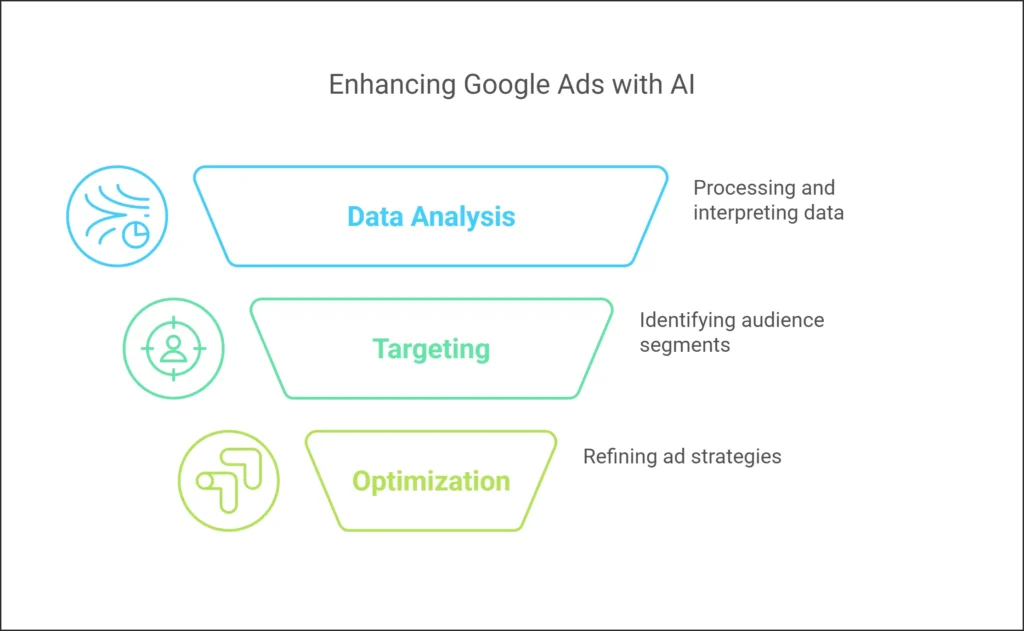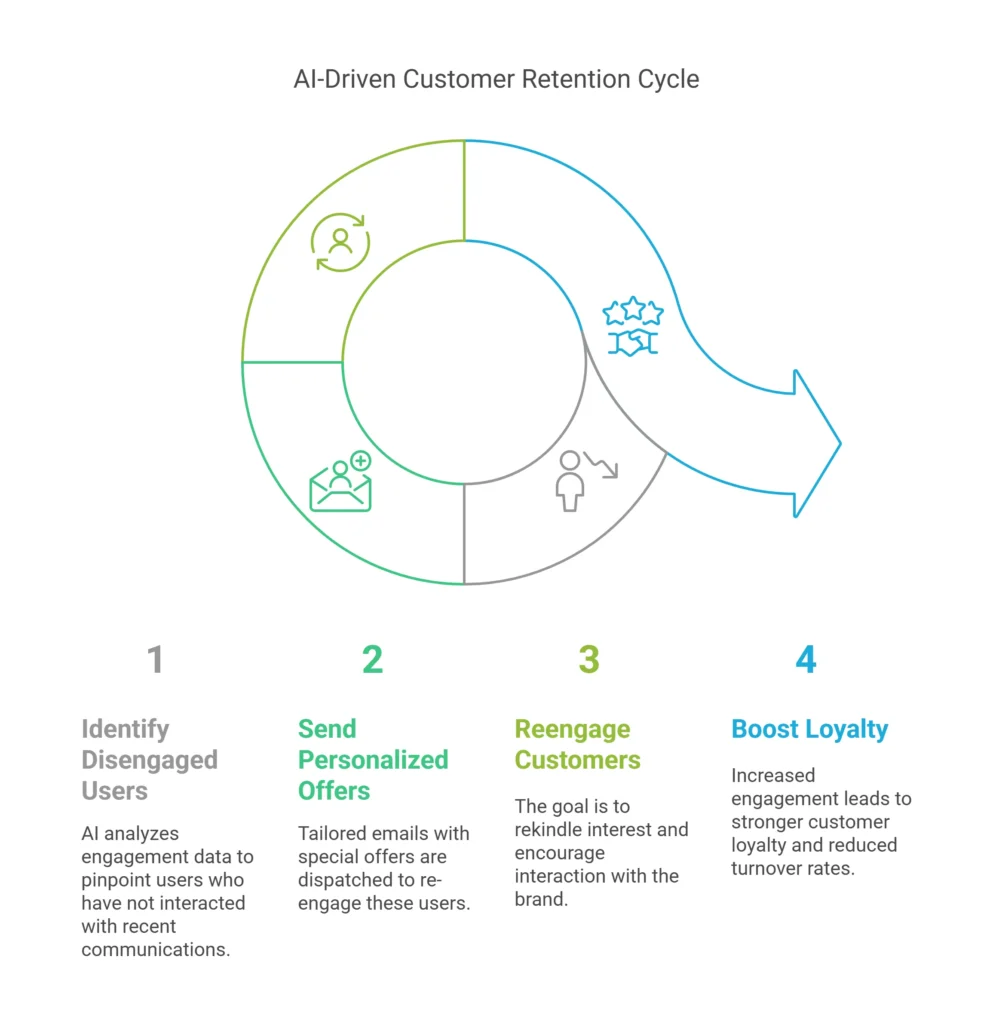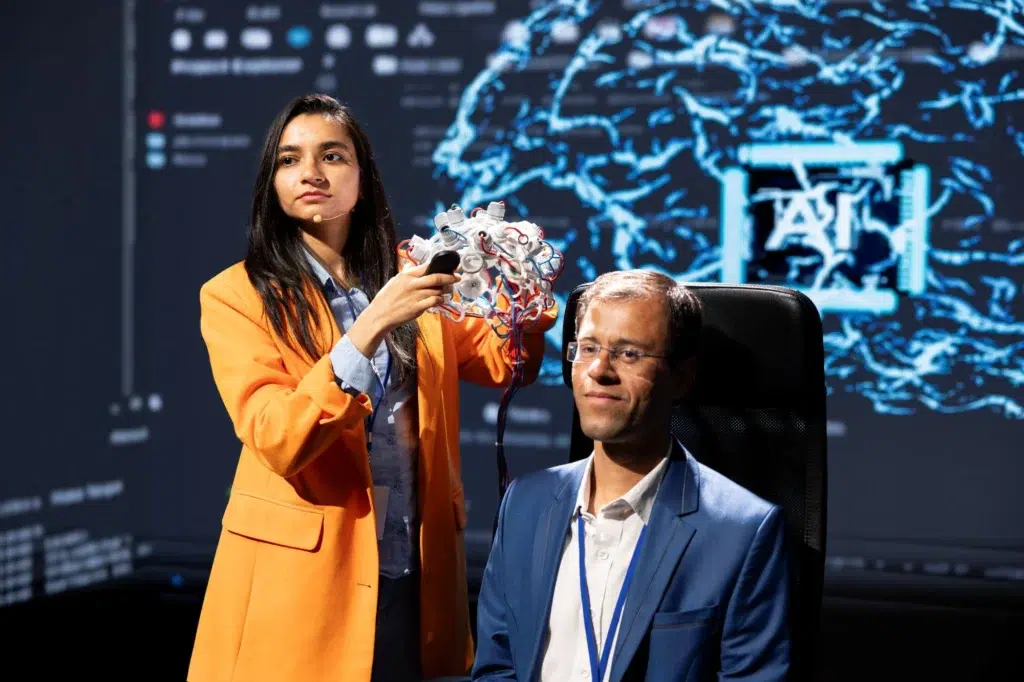- how to
- marketing
Artificial intelligence (AI) is no longer just a futuristic concept; it is an essential tool for modern marketing. As AI continues to dominate business discussions in the office, companies that embrace its capabilities can increase efficiency, improve customer engagement, and drive long-term growth. From personalization to predictive analytics, AI is reshaping marketing in ways that used to be unimaginable a few years ago. This article explores how businesses can leverage AI to optimize their marketing efforts, drive conversions, and gain a competitive edge.
Personalization Using AI

AI has revolutionized personalized marketing which has allowed businesses to create tailored experiences for their customers. Consumers today expect marketing to speak directly to their interests, and AI enables businesses to track user behavior, predict preferences, and craft more personalized campaigns for consumers. Personalization made by AI goes far beyond simply typing or inserting a customer’s name into an email. By analyzing purchase history, browser history, and engagement levels, businesses can recommend more relevant products and content. Companies that are more proficient at personalization generate about forty percent more revenue than those that do not.
A prime example of how AI-backed personalization keeps users engaged is Netflix. By analyzing viewing history and watch time, Netflix’s recommendations suggest content tailored to individual preferences, reducing customer turnover and increasing watch time. This same AI-driven approach can be applied to marketing, ensuring that customers receive the right message at the right time. While ninety-two percent of businesses use AI-driven personalization to drive growth, some consumers have concerns about data privacy and security. Companies must balance personalization with transparency to ensure customers feel in control of their data.
AI in Content Creation

In addition to personalization, AI has transformed content creation. Marketers are relying more on AI tools to help generate blog posts, social media content, and video scripts. These tools not only speed up production, but also ensure businesses remain consistent and relevant with their messaging. AI-powered content tools analyze trending topics, suggest headlines, and optimize search engine rankings to increase visibility. AI-generated social media posts can be optimized based on engagement data, ensuring that content performs well before it is even published.
However, while AI assists in content creation, human creativity remains irreplaceable. The best approach is a hybrid model, where AI handles data-driven tasks while marketers add a human touch to ensure authenticity and brand alignment. AI can draft content, but it is human insight that refines messaging, creates emotional intelligence, and crafts compelling narrative that can better resonate with audiences.
AI-Driven Advertising

AI is also transforming digital advertising by automating ad targeting, budget allocation, and performance tracking. AI algorithms analyze consumer behavior, demographics, and interests to optimize marketing spend and improve conversion rates. AI enhances digital advertising through predictive analytics, real-time bidding, and automated ad creation. Platforms like Google Ads use AI-powered real-time bidding (RTB) to place ads strategically, to ensure businesses get the best return on investment.
Facebook’s AI-powered ad system analyzes engagement history, demographics, and browsing behavior to deliver more relevant ads to users. Businesses leveraging Facebook’s AI-driven ad tools see increased ROI by automatically optimizing ad placements. AI-powered ad platforms continuously learn from data and alter strategies over time to maximize conversions while reducing wasted ad spend.
AI in Search Engine Optimization

Another area where AI is making a significant impact is search engine optimization (SEO). AI-powered SEO tools analyze search trends, keyword intent, and competitor strategies to improve rankings. Automated keyword research allows businesses to identify trending search terms, while AI-generated content suggestions help optimize blog posts.
Additionally, AI plays a very important role in voice search optimization by leveraging natural language processing (NLP) to align with how users phrase spoken search queries. Google Search Generative Experience (SGE) is already changing how AI influences search results, shifting away from traditional keyword-based searches to a deeper understanding of user intent. Businesses that adapt to AI-driven search trends will remain competitive in organic search rankings.
AI in Email Marketing

AI has also revolutionized email marketing by making campaigns more personalized and efficient. AI algorithms optimize send times by predicting when users are most likely to engage with emails, increasing open rates and conversions. AI-generated subject lines can improve open rates by more than twenty percent.
Furthermore, AI helps businesses predict customer turnover by identifying disengaged users and automatically sending retention-focused emails with special offers or personalized content to bring them back and help reengage them. A business could use AI to track which customers have not engaged in weeks and send them a personalized discount code or incentive to rekindle interest. These data-driven strategies boost loyalty and reduce customer turnover, ensuring long-term customer retention.
Addressing AI Challenges

Despite the fact that AI has many advantages, its increasing role in marketing raises ethical concerns. Consumers are more aware of how their data is being used, leading to growing concerns about privacy, bias, and transparency. Businesses must navigate issues related to data privacy, ensuring they collect and use customer information ethically and with customer consent. AI algorithms must also be monitored to prevent biased decision-making, as AI systems can sometimes reinforce existing biases that may have been present in the training stage. Transparency is another key factor, as customers want to know when AI is being used in marketing strategies. Companies that prioritize ethical AI usage will build stronger consumer trust and long-term brand loyalty.
The Future of AI in Marketing

Looking ahead, AI in marketing will continue to evolve, with several key trends shaping the future. AI-generated video content is becoming more advanced, allowing businesses to create realistic and engaging promotional videos without requiring large production teams. Virtual influencers powered by AI are also gaining popularity on social media, offering brands a new way to engage with audiences.
Conversational AI and chatbots will become more sophisticated, providing seamless, human-like customer service experiences. AI-powered predictive analytics will become even more precise, enabling businesses to anticipate customer needs before they arise and tailor marketing strategies accordingly. Additionally, AI-driven augmented reality (AR) and virtual reality (VR) experiences will become more common, allowing businesses to create immersive marketing campaigns that captivate consumers.
Conclusion
AI is not just a passing trend, it is a fundamental shift in how businesses approach marketing. Companies that adopt AI strategically will gain a competitive advantage by delivering personalized experiences, optimizing campaigns, and improving customer engagement. However, while AI provides powerful data-driven insights, it is crucial to balance automation with authenticity. The most successful businesses will integrate AI’s analytical power with human creativity, ensuring that marketing strategies remain both data-driven and emotionally compelling. As AI continues to advance, the question for businesses is no longer whether to adopt AI, but how to leverage it effectively to stay ahead of the competition.





